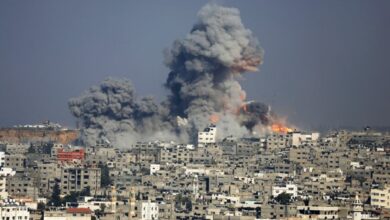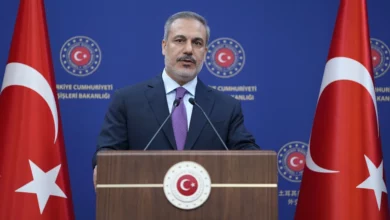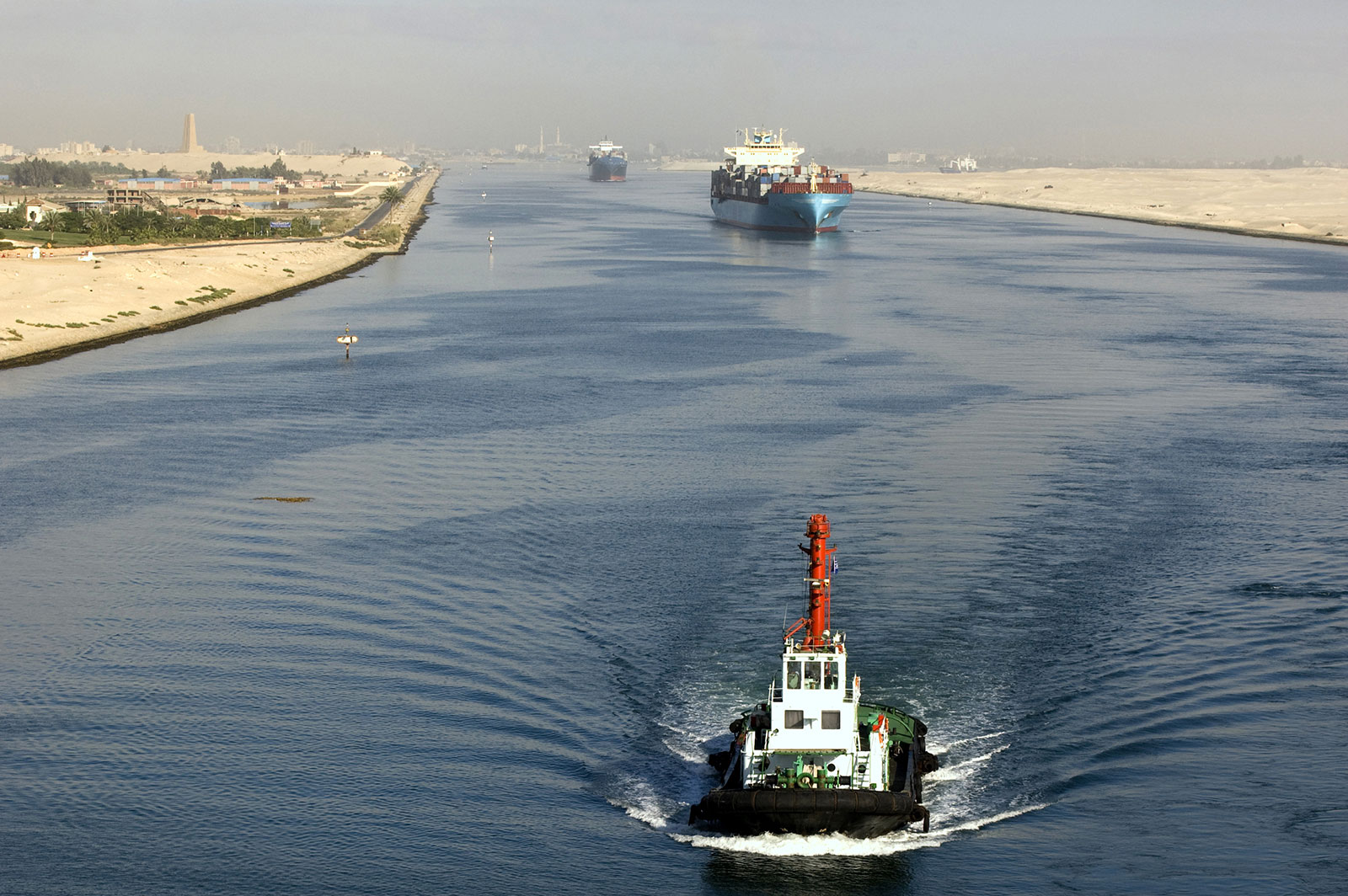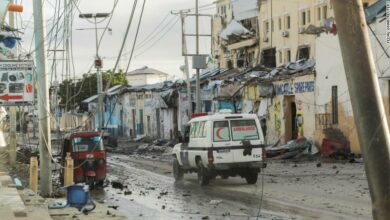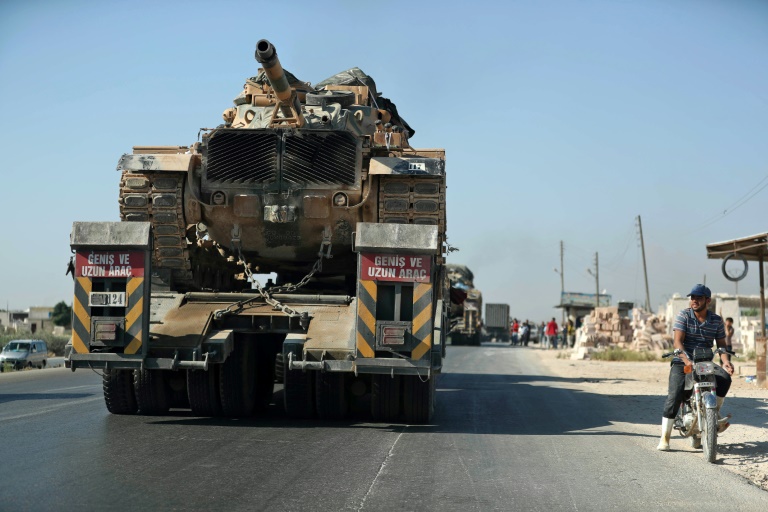
Syrian government forces surrounded a Turkish military observation post in the northwest on Friday after overrunning neighbouring towns, upping the stakes with Ankara in its Russian-backed offensive against the jihadist-ruled Idlib region.
Ankara vowed on Tuesday that it would not abandon any of 12 observation posts it established in the region under a deal with Damascus ally Moscow last and warned the Syrian government “not to play with fire”.
The town of Morek, where the Turkish troops have been cut off, lies in the north of Hama province, part of a jihadist-ruled region centred on neighbouring Idlib province that has been under government assault since late April.
 AFP / Sophie RAMIS Idlib, Syria’s last rebel stronghold
AFP / Sophie RAMIS Idlib, Syria’s last rebel strongholdGovernment forces took control of Morek and other nearby towns including Kafr Zita, state news agency SANA said.
“Regime forces have surrounded the Turkish observation post in Morek after capturing other towns and villages in this pocket,” the Britain-based Syrian Observatory for Human Rights said.
Jihadists and allied rebels had withdrawn from the area ahead of the army’s entry into the strategic town of Khan Sheikhoun on Wednesday and government forces took control without resistance.
When troops entered Kfar Zita at dawn, they found the town “deserted”, Observatory head Rami Abdul Rahman told AFP.
‘Whatever is necessary’
The observation post in Morek is one of 12 the Turkish army set up along the front line between government forces and the jihadists and their rebel allies last year.
 AFP/File / Omar HAJ KADOUR Turkish military convoys have become a common sight on the roads of Syria’s jihadist-ruled Idlib region as Ankara resupplies its 12 observation posts
AFP/File / Omar HAJ KADOUR Turkish military convoys have become a common sight on the roads of Syria’s jihadist-ruled Idlib region as Ankara resupplies its 12 observation posts
Foreign Minister Mevlut Cavusoglu vowed on Tuesday that the army would do everything it could to defend its observation posts.
“We will do whatever is necessary to ensure the security of our soldiers and observation posts,” Cavusoglu told reporters in Ankara.
The Turkish presidency has said that there was “no question of closing or moving” the observation post in Morek. “All the other posts will be maintained”.
The troops’ mission was to oversee the establishment of a buffer zone agreed by Ankara and Moscow in September.
But the jihadists failed to pull back from the zone as agreed and in April, government and Russian forces resumed intense bombardment of the region.
Nearly 900 civilians have been killed, according to the Observatory.
Overnight Friday, three civilians, including a child were killed in government air strikes on the Idlbi province town of Maarat al-Numan.
The Idlib region, which sits on the Turkish border, is the last major stronghold of opposition to Assad’s Russia-backed government.
Since January, it has been ruled by the Hayat Tahrir al-Sham alliance, which is led by jihadists from Syria’s former Al-Qaeda affiliate.
Other rebel groups allied with Turkey were forced to cede overall control.
On August 8, Syrian government forces launched a ground offensive with Russian support against the southern part of the rebel-held region, eyeing control of the main highway from Damascus through Idlib province to second city Aleppo.
Khan Sheikhoun and Maarat al-Numan both lie along the highway.
“I see Assad continuing his offensive as momentum is on his side, capturing more of Idlib… and securing more strategic infrastructure,” said Syria researcher Samuel Ramani.
Turkish President Recep Tayyip Erdogan is to host his Russian and Iranian counterparts for a summit in Ankara next month to discuss the latest developments.
 AFP / Omar HAJ KADOUR Syrian civilians flee government bombardment of their villages in the rebel-held Idlib region as troops advance on key towns along the strategic Damascus-Aleppo highway
AFP / Omar HAJ KADOUR Syrian civilians flee government bombardment of their villages in the rebel-held Idlib region as troops advance on key towns along the strategic Damascus-Aleppo highwayDamascus said Thursday it will open a corridor for civilians to leave the area.
But most civilians had already fled before the pocket was cut off, according to the Observatory.
Since the end of April, more than 400,000 people have fled their homes, particularly in the south of Idlib and north Hama, the United Nations says.
Following a string of victories against jihadists and other rebel groups, President Bashar al-Assad’s government now controls around 60 percent of Syrian territory.

